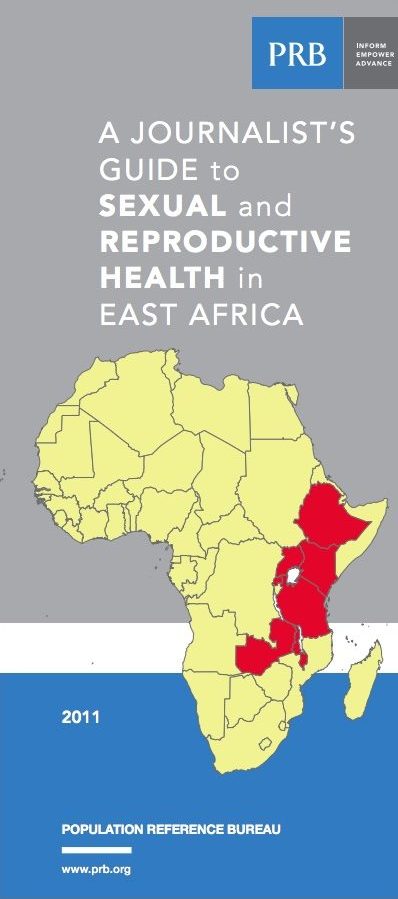
A Journalist's Guide to Sexual and Reproductive Health in East Africa
(September 2011) Sexual and reproductive health encompasses health and well-being in matters related to sexual relations, pregnancies, and births. It deals with the most intimate and private aspects of people’s lives, which can be difficult to write about and discuss publicly. As a result, the public often misunderstands many sexual and reproductive health matters. In addition, cultural sensitivities and taboos surrounding sexuality often prevent people from seeking sexual and reproductive health information and care and preclude governments from addressing the issues.
Yet, sexual and reproductive health profoundly affects the social and economic development of countries. When women die in childbirth or from AIDS, children are orphaned. When girls must take over care of their siblings, they drop out of school. Without an education, girls often marry and begin having children early, which can jeopardize their health and limit their opportunities to contribute to the development and productivity of their communities and countries.
The media play a critical role in bringing sexual and reproductive health matters to the attention of people who can influence public health policies. These people include government officials and staff; leaders of nongovernmental organizations, including women’s groups and religious groups; academics and health experts; and health advocates and other opinion leaders.
Journalists who produce accurate and timely reports about sexual and reproductive health issues can:
- Bring taboo subjects out in the open so they can be discussed.
- Monitor their government’s progress toward achieving stated goals.
- Hold government officials accountable to the public.
This guide aims to help journalists educate the public and policymakers on these issues by bringing together the latest available data on sexual and reproductive health for seven East African countries: Ethiopia, Kenya, Malawi, Rwanda, Tanzania, Uganda, and Zambia. Additional data are included for selected countries in western and southern Africa, including Ghana, Liberia, Madagascar, Mozambique, Nigeria, Sierra Leone, and Zimbabwe. Content and data sourced to websites were available as of May 31, 2011. More information is included for the countries that have had a more recent Demographic and Health Survey (DHS).
Deborah Mesce is program director, International Media Training at PRB. Karin Ringheim was senior policy adviser in International Programs at PRB.

 ">
">